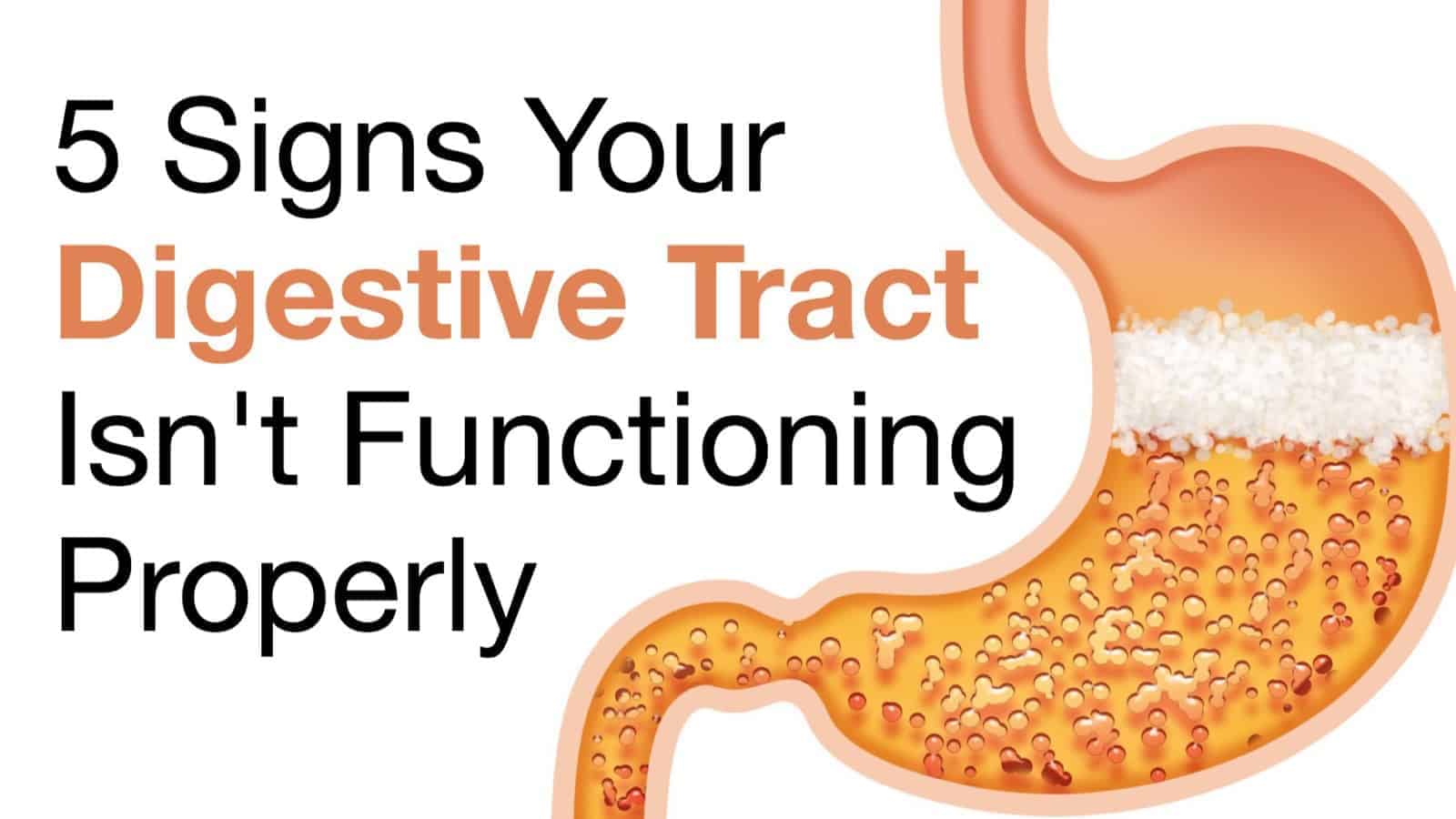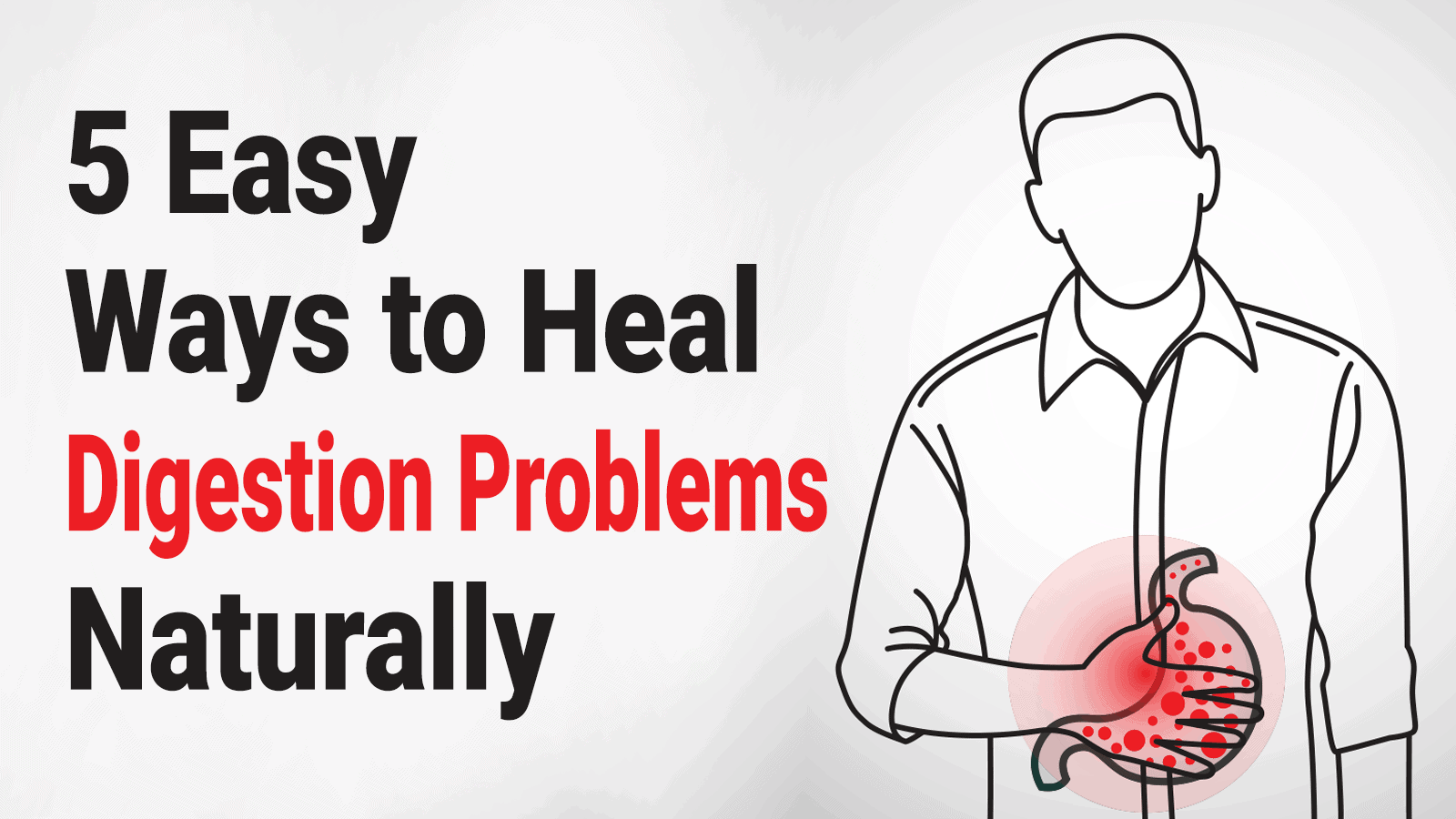Healthy digestion is crucial to taking in, absorbing, and transporting nutrients throughout the body. You may not think about it, but digestion is constantly going on in your body. Your digestive system covers all things in your body that have a primary function of taking care of what you eat and drink.
In total, seven parts make up the digestive process: the mouth, esophagus, stomach, small and large intestine, pancreas, and liver.
Before we get into all of that, here are a few interesting (and subsequently relevant) truths about digestion:
– We produce about 32 ounces of saliva every day. Saliva has numerous functions, including neutralizing acids, digesting food, and carrying minerals to the enamels of the teeth.
– Our brain communicates with the digestive system through the ‘gut-brain axis.’ As such, our emotions (including stress) directly affect how the body digests food!
– The small intestine is approximately 23 feet long; the large intestine is only about 5 feet. (Kinda ironic, eh?)
– Our stomach can hold as much as 4 pounds of food at once.
– Gastrointestinal distress can be caused by something as simple as drinking just one cup of a carbonated beverage.
This last fact is the perfect segue into the article’s topic: digestion problems – and how to rectify them naturally. (Cutting back on soda is a great place to start, by the way!)
Common Symptoms and Conditions of digestion problems

As you already know, a healthy digestive system is crucial to overall health and well-being. But due to the sensitive nature of such issues, many people are hesitant to discuss their symptoms. The result? An unprecedented number of clinic visits and hospitalizations. This, despite the fact that most digestive problems are both preventable and, in many cases, require nothing more than some natural care.
According to the American College of Gastroenterology (ACG), bloating, constipation, diarrhea, gas, heartburn, indigestion, nausea, and vomiting are some of the most commonly reported symptoms. ACG indicates the following conditions as being common:
– Abdominal Pain Syndrome
– Chronic Diarrhea
– Gallbladder Disorders and Gallstone Pancreatitis
– Gallstones in Women
– Gastroesophageal reflux disease (GERD)
– Hemorrhoids
– Irritable Bowel Syndrome (IBS)
– Peptic Ulcer Disease
– Rectal Problems in Women
5 Easy Natural Fixes For Digestion Issues
There are literally dozens of over-the-counter and prescription drugs designed to treat digestion difficulties. While stronger medications are sometimes necessary for more severe conditions (e.g., bowel disease, Crohn’s disease), many are naturally treatable.
Here are a few quick and natural treatments:
1. Add some probiotics
Your digestive system contains a balance of “good” and “bad” bacteria. Probiotics are considered “good” bacteria, as they help to maintain gut health through boosting immune function, increasing resistance to infection, and repressing harmful bacteria.
Sources of probiotics include yogurt, miso, kombucha, kefir, kimchi, pickles, soybeans, tempeh, and sauerkraut.
2. Change your eating habits
Making some simple changes to how you eat can save you digestion troubles later on. The way you consume food has a significant impact on the health of your digestion system.
Here are some tips:
– Chew slowly: Deliberate chewing breaks food down into smaller particles, making them much easier to digest. Remembering to chew food properly is perhaps one of the most overlooked aspects of digestive health.
– Eat in a neutral or positive state: Remembering that your brain and gut are connected may save you a few stomachaches. Your mood has a profound effect on digestive health.
– Turn off distractions: Disconnecting from the T.V. and interwebs makes it easier to focus on eating mindfully. Bonus: this allows you to enjoy tasty food that much more!
3. Drink plenty of water
H2O is critical to proper digestion. Even slight dehydration can cause all sorts of tummy troubles; especially when eating. Adequate water intake promotes healthy digestive function while fending off stomach pain and constipation.
We should be drinking a minimum of eight 8-ounce glasses of water per day – or about half of a gallon. When experiencing digestive troubles, you should consider increasing your intake to 10 glasses, or 80 ounces.
4. Eliminate inflammation-causing foods
Inflammation can wreak havoc on your digestive system, causing troublesome symptoms like abdominal pain, constipation, and diarrhea. As mentioned, balanced gut flora is critical to proper digestion, and certain foods throw off this balance.
Replacing the following food types may just ease your troubles: artificial sweeteners, gluten, heavily-processed foods (i.e., pretty much anything in a box), and soy protein.
5. Raise stomach acid levels
Despite popular belief, elevated stomach acid levels do not instigate heartburn. In fact, low levels of hydrochloric acid are to blame. Despite being well-chewed and saturated in saliva, food still requires stomach acid to transition into a liquid form for proper digestion.
Freshly squeezed lemon juice, raw and unfiltered apple cider vinegar, and, of course, proper chewing, are all simple and easy ways to elevate your stomach acid.
https://youtu.be/yG-G9_LOkLA
















